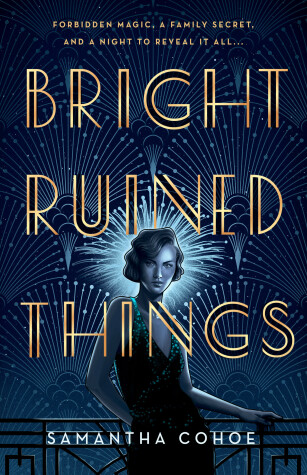Samantha Cohoe is back with another brilliant novel, Bright Ruined Things. This one blends historical fiction with fantasy in all the best ways, creating a tale that feels both familiar and new. Oh, did I mention that it's set during a fictional 1920s?
Mae has always lived a bit of a sheltered life, even though she depends entirely on the charity of others. More specifically, the charity of the Prosper family. This very family controls all the magic around.
Secretly, Mae has always desired a bit of magic to call her own. When First Night happens, the world around her begins to unravel, making it clear that the story the Prosper family has been telling all these years is little more than a lie.
“Something is wrong on this island, with this family.”
A lot is going on within the pages of Bright Ruined Things. In truth, I think that I'm still processing it. But that's not going to stop me from talking about it – and trust me, it is worth talking about.
Here's the thing, if you loved the Great Gatsby, you're going to love the vibes of Bright Ruined Things. Though I imagine the cover (and description) already made that pretty obvious. The biggest difference, other than perspectives, would be the inclusion of magic. Oh, and the secluded nature of the island.
I think the most fascinating element about Bright Ruined Things is that it isn't a retelling of The Great Gatsby. Do you know what it is a retelling of? The Tempest. Though it steals the atmosphere from the 1920s (hence the Gatsby vibes), creating something wholly new.
I don't normally find myself saying this, but I would give anything to see Bright Ruined Things turned into a movie. Or a play! That would be a bit of an ironic twist. Yet, for obvious reasons, I feel like this story would do well with a visual element to the storytelling.
Thanks to Wednesday Books and #NetGalley for making this book available for review. All opinions expressed are my own.
Read more reviews over at Quirky Cat's Fat Stacks
Reviewed by Quirky Cat on
Reading updates
- Started reading
- 25 April, 2022: Finished reading
- 25 April, 2022: Reviewed
